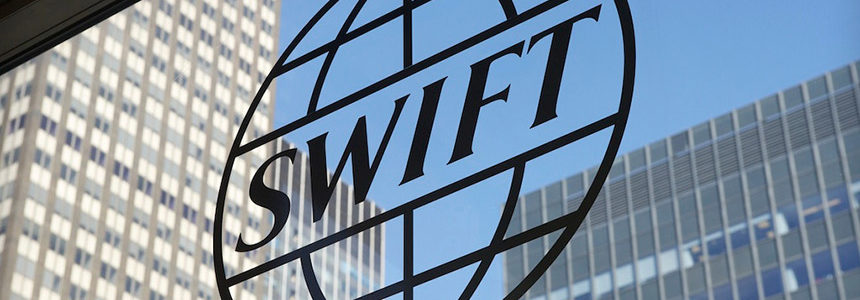
German foreign minister Heiko Maas recently penned an article in which he said that “it’s essential that we strengthen European autonomy by establishing payment channels that are independent of the US, creating a European Monetary Fund and building up an independent Swift system.”
So what exactly is Maas’s quibble with SWIFT, the Society for Worldwide Interbank Financial Telecommunication? SWIFT is a proprietary messaging system that banks can use communicate information about cross border payments. President Trump has threatened to impose sanctions on SWIFT if it doesn’t remove a set of Iranian banks from the SWIFT directory.
For Heiko Maas, this is a problem. Iran and Germany remain signatories to the same nuclear deal that Trump reneged on earlier this year. The deal committed Iran to cutting back its uranium enrichment program and allowing foreign inspectors access to nuclear sites, in return obligating signatories like Germany to normalize economic relations with Iran, including allowing the unrestricted sale of oil. If Iran is bumped from SWIFT, it could prevent Germany from meeting its side of the deal, potentially scuppering the whole thing. So a fully functioning SWIFT, one that can’t be manipulated by foreign bullies, is key to Germany meeting its current foreign policy goals.
SWIFT is vital because it is a universal standard. If I want to send you USD 10,000 from my bank in Canada to your bank in Singapore to pay for services rendered, bank employees will use SWIFT terminals and codes to communicate how to manipulate the various bank ledgers involved in the transaction. If a bank has been banished from SWIFT, then it can no longer use what is effectively a universal banker’s language for making money smoothly flow across borders.
It would be as-if you were at a party but unlike all the other party-goers were prohibited from using words to communicate. Sure, you could get your points across through hand gestures and stick drawings, but people would find conversing with you to be tiring and might prefer to avoid you. Without access to SWIFT, Iranian banks will be in the same situation as the mute party-goer. Sure, they can always use other types of communication like email, telex or fax to convey banking instructions, but these would be cumbersome since they would require counterparties to learn a new and clunky process, and they wouldn’t necessarily be secure.
It seems odd that Maas is complaining about SWIFT’s independence given that it is located in Belgium, which is home territory. But Trump, who is on the other side of the Atlantic, can still influence the network. The way that he plans to bend SWIFT to his will is by threatening members of its board with potential asset expropriations, criminal charges, travel bans, as well as punishing the companies they work for by restricting them from conducting business in the U.S.

